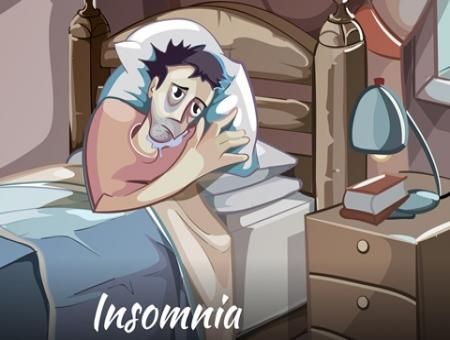ALCOHOL AND DRUG ABUSE AND DEPENDENCE, HARMFUL EFFECTS/COMPLICATIONS AND MANAGEMENT
By Dr. Madhusudan Singh Solanki in Mental Health And Behavioural Sciences
Apr 12 , 2021 | 4 min read
5
Your Clap has been added.
Thanks for your consideration
Share
Share Link has been copied to the clipboard.
Here is the link https://www.maxhealthcare.in/blogs/alcohol-and-drug-abuse
Substance Use Disorder is a mental health disorder that affects a person’s mood, behaviour, brain and body in various harmful ways due to the use of a substance like alcohol or drugs and it is characterized by inability to control the use despite evidence of harm.
Often alcohol and drug use disorder starts as abuse and then it progresses to become addiction or substance dependence.
Usually people get confused between abuse and dependence, so let’s understand the difference
Substance abuse is
- Harmful use of alcohol or any other drug which has resulted in legal problems caused by drug abuse or behaviour under the influence of the drug,
- Physical harm to others due to drug or alcohol use,
- Not able to fulfil responsibility at school, work or home due to alcohol or drug use
- Continuing use of alcohol or drugs despite problems arising out of alcohol and drug use.
While addiction of alcohol or drugs is characterized by
- Development of tolerance- that is larger amounts of alcohol or drugs is needed to have the same effect and the amount goes on increasing.
- Development of withdrawal symptoms (may include mood and behavioural changes and physical symptoms) when alcohol or drugs are not consumed.
- Losing interest in other activities and pursuits.
- Reduction in interaction with family and friends( withdrawn behaviour),
- The person’s day and activity revolves around getting alcohol or the drug and getting high,
- Inability to cut down the use despite multiple attempts, continued use of alcohol or drug despite various problems arising out of such use.
So the basic difference is- a person with alcohol or drug abuse can stop the use anytime for long periods without much problem but once a person is addicted or dependent on alcohol or drugs then it is difficult to stop the use despite problems and a desire to quit. But this doesn’t mean that abuse is less harmful than dependence or addiction, in fact chronic drug or alcohol abuse can be quite damaging to the user’s life as you can see in the definition itself what kind of legal, social ,relational and health related harmful consequences one can invite due to alcohol and drug abuse.
Substance use disorder results in harm and damage to one’s physical and mental health, affects one’s functioning at work and results in relational conflicts and social and legal problems.
It includes addictions of substances like alcohol, opioids, heroin, cocaine, cannabis or weed, amphetamines, LSD, nicotine use or smoking or chewing tobacco,proxyvon, pain killers, nail paint removers and many other substances.
The harmful effects and complications of drug and alcohol use
Alcohol and drug use has been linked to various short term and long term harmful effects for the users and it varies according to the type of substance used which includes
Short term effects—changes in sleep, appetite, increased heart rate or palpitations, slurred speech, difficulty focussing and concentrating, loss of coordination which may result in accidents, apart from that various legal, relational and social issues due to even single instance of drug and alcohol abuse which may have long term effects on one’s life, for e.g. drunken driving or a legal case due to a fight under the effect of alcohol or drug resulting in physical damage or legal issue. Here it is important to understand that even single use of some drugs like cannabis can induce severe mood and behavioural symptoms to psychosis in the user.
Long term effects—chronic use of drug and alcohol alters the brain structure and function in a way that may predispose the person to develop depression, anxiety, panic attacks, agitation, anger outbursts, paranoia, hallucinations, poor memory, concentration, reduced productivity, poor relationships along with development of following physical health disorders
Heart diseases (alcohol, cocaine , methamphetamine, nicotine) heart attacks, arrhythmias
Respiratory disorders (smoking, opioids, alcohol)
Liver damage (alcohol and other drugs) cirrhosis to liver failure
Kidney damage (heroin, ketamine, cannabinoids, alcohol and other drugs)
Suicide –There is higher risk of suicide attempts (six times more than normal people) and completed suicide (3 to 9 times higher) in people who abuse alcohol or drugs or are dependent on them.
Diagnosis
Substance use disorder can be diagnosed clinically by detailed history both from the patient and close informants and care takers; mental status examination and physical examination for signs of substance intoxication or withdrawal and some investigations may also help.
Management
Substance use disorder is a complex disorder requiring a multi pronged strategy to deal with it.
Management usually comprises of three steps
Intervention: In this phase the person is confronted with the consequences of his substance use and resulting problems to break denial and improve motivation for treatment and abstinence.
Family members are made to understand that they should not protect the patient from the problems caused by addiction also they are provided with insight and understanding to recover from the guilt, fear and anger they often harbour. They are also encouraged to meet support groups if any available.
Detoxification: Includes thorough physical examination and then based on the severity of withdrawal symptoms medication is provided along with rest, adequate nutrition and vitamins .Studies have shown that people who receive substance abuse treatment have better outcomes and chances of remaining abstinent than those who do not.
Rehabilitation: In this phase emphasis is on maintaining high levels of motivation for remaining abstinent from substance and the patient is helped to adjust to a new life style free of addiction and continued efforts are made to prevent relapses.
- Psychotherapy & counselling, Cognitive behavioural therapy, Supportive psychotherapy, Family therapy, Group therapy can help.
- Self help groups like alcoholic anonymous can also provide the much needed support and strength and learning from experience sharing and by observing the substance free life style of a sober peer group.
- Long term safe medication for any co-morbid mental health problem like depression or anti-craving medications or medications for harm reduction may be needed to sustain the benefits.
Remember substance use or addiction is a mental health disorder and it is fairly treatable.
Early treatment increases the likelihood of a better outcome and the complications can be prevented.
To see a Psychiatrist call---01171212121

Written and Verified by:
Related Blogs

Dr. Sameer Malhotra In Mental Health And Behavioural Sciences
Nov 07 , 2020 | 7 min read

Dr. Prashant Gupta In Mental Health And Behavioural Sciences , Psychiatry
Nov 08 , 2020 | 5 min read
Blogs by Doctor

How Reading is a Stress Buster
Dr. Madhusudan Singh Solanki In Clinical Psychology
Feb 06 , 2020 | 1 min read

Taking care of mental health during lockdown
Dr. Madhusudan Singh Solanki In Mental Health And Behavioural Sciences
May 14 , 2020 | 4 min read
Most read Blogs
Get a Call Back
Related Blogs

Dr. Sameer Malhotra In Mental Health And Behavioural Sciences
Nov 07 , 2020 | 7 min read

Dr. Prashant Gupta In Mental Health And Behavioural Sciences , Psychiatry
Nov 08 , 2020 | 5 min read
Blogs by Doctor

How Reading is a Stress Buster
Dr. Madhusudan Singh Solanki In Clinical Psychology
Feb 06 , 2020 | 1 min read

Taking care of mental health during lockdown
Dr. Madhusudan Singh Solanki In Mental Health And Behavioural Sciences
May 14 , 2020 | 4 min read
Most read Blogs
- CAR T-Cell Therapy
- Chemotherapy
- LVAD
- Robotic Heart Surgery
- Kidney Transplant
- The Da Vinci Xi Robotic System
- Lung Transplant
- Bone Marrow Transplant (BMT)
- HIPEC
- Valvular Heart Surgery
- Coronary Artery Bypass Grafting (CABG)
- Knee Replacement Surgery
- ECMO
- Bariatric Surgery
- Biopsies / FNAC And Catheter Drainages
- Cochlear Implant
- More...





